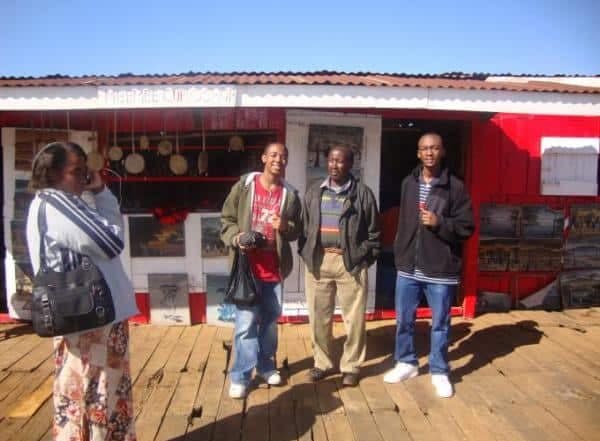We're loading the full news article for you. This includes the article content, images, author information, and related articles.
A campaign by Kenyans abroad urges an end to charging non-citizen spouses and children tourist rates at national parks, arguing the policy undermines family unity and ignores their significant economic contributions through remittances.

NAIROBI, Kenya – A growing movement of Kenyans living overseas has initiated a formal petition demanding that the Kenyan government cease classifying their non-citizen spouses and children as “tourists” when visiting national parks and heritage sites. The petition, hosted on Change.org, argues that the current fee structure imposed by agencies like the Kenya Wildlife Service (KWS) and the National Museums of Kenya (NMK) is discriminatory and fails to acknowledge the deep ties and substantial economic contributions of the diaspora community.
Under the present regulations, a Kenyan citizen holding a national ID card pays subsidized “citizen” rates to enter conservation areas. For instance, entry to Nairobi National Park for an adult citizen is KES 1,000. However, their spouse or child holding a foreign passport is charged the non-resident rate, which can be as high as USD 80 (approximately KES 10,800 at current exchange rates). Similarly, entry to the Nairobi National Museum costs a citizen KES 200, while a non-resident adult pays KES 1,200. The petitioners contend that this disparity effectively penalizes Kenyans for marrying foreign nationals and raising families abroad, creating a financial barrier for them to share their national heritage with their loved ones.
“This policy sends a painful message — that our loved ones are seen as foreigners in their own homeland,” one petitioner commented on the campaign page. The core argument of the petition is that these family members are not tourists in the conventional sense but are integral parts of Kenyan families returning home.
The campaign highlights the immense financial contribution of the diaspora to Kenya's economy. According to the Central Bank of Kenya (CBK), diaspora remittances are a primary source of foreign exchange for the nation, often surpassing earnings from traditional sectors like tourism and agriculture. In 2024, remittances reached a record high of USD 4.95 billion (KES 640.8 billion), an 18% increase from the previous year. Data released in May 2025 showed that cumulative inflows for the 12 months leading up to April 2025 surged to nearly USD 5 billion (KES 749.6 billion). The United States remains the largest source of these remittances.
“Diaspora Kenyans are among the biggest investors in Kenya’s economy. We support our families, build homes, and promote Kenya abroad. It is unfair that when we return home, our families are treated as tourists,” the petition states. Proponents argue that recognizing diaspora families with concessionary rates would be a gesture of goodwill that acknowledges their role in nation-building and could further stimulate “diaspora tourism,” encouraging more frequent and longer visits.
The controversy arises amidst a broader debate over KWS conservation fees. In late September 2025, KWS gazetted a new, significantly higher fee structure, the first major revision in nearly two decades. However, following a petition by the Kenya Tourism Federation citing a lack of adequate notice, the High Court issued a temporary injunction on October 2, 2025, halting the implementation. Despite the court order, the KWS payment portal on eCitizen continues to charge the new, higher rates, with KWS advising visitors to pay the displayed fees and seek refunds later if the court permanently blocks the changes. This has caused confusion and frustration within the tourism sector, with tour operators protesting the new system and an additional 8.5% 'gateway fee' on digital payments as recently as November 6, 2025.
The current KWS framework categorizes visitors into four tiers: East African Citizens, Kenya Residents, African Citizens (non-EAC), and Non-Residents. The diaspora petition proposes a new consideration: a family-based or spousal category that would allow a Kenyan citizen to bring their immediate non-citizen family members (spouse and children) into parks and museums at the citizen or resident rate upon presentation of proof of relationship, such as a marriage certificate or birth certificates.
As of Friday, November 8, 2025, the Kenyan government, the Ministry of Tourism and Wildlife, KWS, and NMK have not issued a formal public response to the petition. The campaign continues to gain signatures online as diaspora members mobilize to amplify their call for policy reform. The outcome of this petition could have significant implications not only for diaspora families but also for how Kenya engages with its global community and leverages their potential to support the domestic tourism economy.
The petitioners hope that their appeal will prompt a review of the current pricing policies, leading to a more inclusive framework that strengthens the bonds between Kenyans abroad and their homeland. The case is scheduled for mention in the High Court on November 11, 2025, which may provide further clarity on the future of park fees in the country.
Keep the conversation in one place—threads here stay linked to the story and in the forums.
Sign in to start a discussion
Start a conversation about this story and keep it linked here.
Other hot threads
E-sports and Gaming Community in Kenya
Active 9 months ago
The Role of Technology in Modern Agriculture (AgriTech)
Active 9 months ago
Popular Recreational Activities Across Counties
Active 9 months ago
Investing in Youth Sports Development Programs
Active 9 months ago